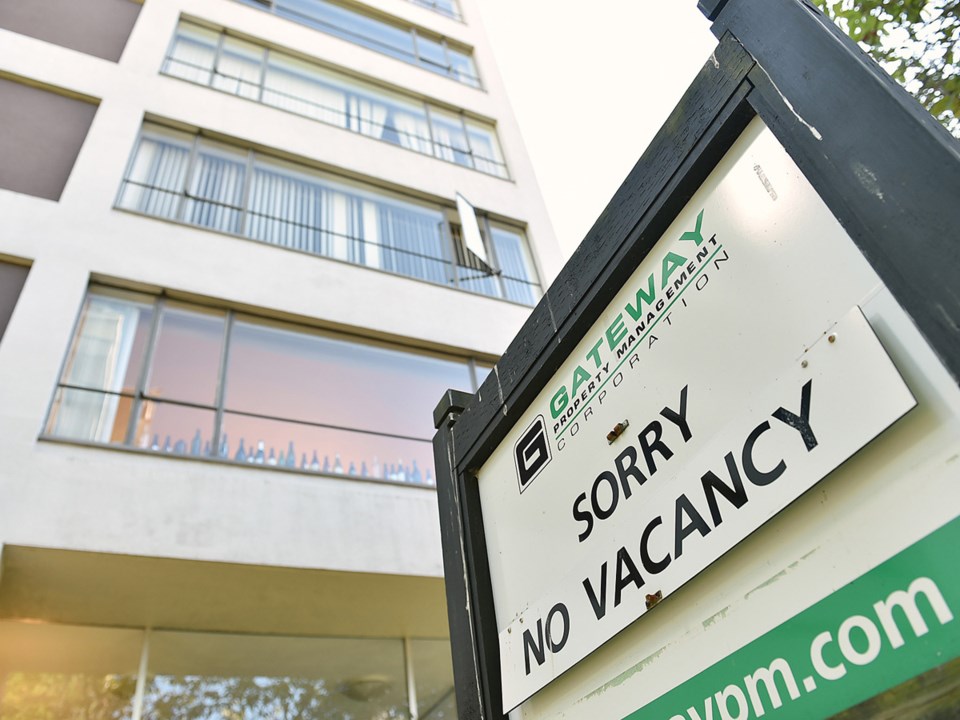The CEO of LandlordBC said the organization is “supportive” of the government’s new Rental Housing Task Force, but David Hutniak added that the situation is complex and he’s hoping for a balanced approach.
NDP Premier John Horgan April 10. Headed by Vancouver-West End MLA Spencer Chandra Herbert, it will consult tenants and landlords. Information will be gathered through the summer and recommendations submitted in the fall. The goal is to “modernize” tenancy laws.
“We had some indication the government was thinking of doing this. So, by and large, we’re positive… Spencer [Chandra Herbert], we know him and we have a lot of respect for him, so he’ll be a good chair.” Hutniak told the Courier Wednesday, while adding he’s still waiting to see the terms of reference for the initiative.
“All we hope for here is that the exercise be based on an in-depth study of the issues. Let’s get the facts on the table and then make some objective decisions.”
Hutniak said while the Residential Tenancy Act could use “some tweaking” for both landlords and tenants, he believes the current act is “by and large balanced.”
He maintains the biggest problem with the rental situation — in Â鶹´«Ă˝Ół»the vacancy rate sits at close to zero — is a supply shortage, with the existing supply, particularly purpose-built rental, being very old.
“We understand and support the need to try and retain and enhance that existing supply. We also know that a whole bunch of it needs to be replaced,” he said. “So we want to ensure there’s an environment that is conducive to doing both things — obviously to be respectful of and take into account existing tenants but [that it] also respects our rights, as owners of these properties, to make these investments and do it in an environment that doesn’t encumber us excessively or doesn’t put excessive restrictions on our ability to do that.”
Hutniak argues that if too many restrictions are put in place, investments into properties won’t happen, which will worsen the rental situation.
He also maintains landlords and renters are aligned on several issues, including the need for purpose-built rental, support for investment in social housing, as well as the NDP government’s decisions last year to close the loophole that allowed for fixed-term leases and to provide $7 million in new funding over three years to the Residential Tenancy Branch (RTB).
The bureaucracy of the RTB hasn’t been working for either tenants or landlords, neither of whom have had timely access to justice, according to Hutniak. Although he credits the government for the recent investment, he said much of the problem between renters and landlords can be traced back the RTB not functioning in a timely fashion in past years.
As for whether he believes landlords are taking advantage of a supply shortage, Hutniak said there are horror stories on both sides, but he said the onus is on landlords to know the Residential Tenancy Act and abide by it.
“We have never been nuanced about the fact that we expect landlords to operate professionally, responsibly and in a respectful fashion,” he said, while adding LandlordBC denounces landlords who evict tenants for renovations, make nominal investments in their properties and then significantly hike the rental rate for the new tenant — a problem often reported on in the city of Vancouver.
But he points out his organization doesn’t have control over that because it’s not a regulatory body.
Hutniak is concerned that if the government “over legislates” the will persist because no one will build and landlords will get out of the business.
“This is a more complex problem than just passing all sorts of legislation. That’s not going to work,” he said. “…We’ve got to keep landlords in business and, even more importantly, we’ve got to encourage landlords to build a ton of purpose-built rentals. That’s the only way out of this problem.”
Although organizations such as the for rent to be tied to the unit rather than the tenant (read VTU’s thoughts about the task force ), Hutniak maintains that would limit what landlords could invest in their properties during turnover.
“If that were touched, if that were eliminated that would be a huge, huge disincentive to being a landlord, to investing in a building or rental housing,” he said. “And it wouldn’t be the landlords who would decide about investing, it would be the banks and the investment funds. They would back away from this market.”
Hutniak said the economics of the business need to remain stable, but he added he’s empathetic to the crisis renters face in today’s market.
“This is not good for anybody and we predicted this crisis 25 years ago. This is not a surprise to us and we totally empathize with renters. They’re our customers, we care about them and we need to get to a balanced market in terms of supply. Look what’s happening in Seattle. They’re building tons of purpose-built rental. What’s happening right now? Prices are going down. And that’s where we need to be.”
@naoibh



